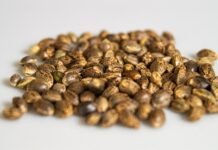What are Urea and Creatinine levels
‘Urea’ and ‘Creatinine’ are ‘chemical waste products’ which are eliminated from the body by the kidneys, in the form of urine. Hence, Urea and Creatinine levels in the blood are considered to be the barometers for the proper functioning of the kidneys, if they are in a certain ‘normal’ range. If these levels rise above that range, medical intervention is required to lower them. There are some useful herbs which can help reduce Urea and Creatinine levels naturally. The lowering of Urea and Creatinine levels is necessary if the go above the ‘normal’ range because that can be a potential indication of kidney disease.
The ‘normal’ range of Creatinine in blood is ‘0.6 mg/dL to 1.2 mg/dL’ in case of men, and ‘0.5 mg/dL to 1.1 mg/dL’ in case of women; with the higher range for men being a result of more muscle mass as compared to women. The ‘normal’ range of Urea in blood is 7 mg/dL to 20 mg/dL for both men and women.
Any alarming rise of Urea and Creatinine levels above the ‘normal’ range can have a damaging effect on the kidneys, and can ultimately put an individual at high risk of kidney failure. In such serious cases of kidney problems, dialysis is generally the only option left for the patients. However, patients suffering from kidney disease can safely depend on the use of some particular herbs which can reduce Urea and Creatinine levels naturally.
How Herbs Can Be Helpful in Reducing Urea & Creatinine Levels Naturally
Ayurveda, an ancient science, relies on the use of herbs for treating patients suffering from chronic and painful diseases, including kidney failure, cardiovascular disorders, diabetes and several other serious ailments. The herbs which form a crucial component of Ayurveda are used for preparing herbal formulations and concoctions, which can provide relief to patients in a safe and natural manner.
The use of herbs is extremely beneficial for people who want to reduce Urea and Creatinine levels naturally. The herbs from which formulations like Mutrakrichantak Churna, Punarnava Mandur, and Varunadi Vati, etc. are prepared, by Ayurveda experts, can be helpful in avoiding dialysis for kidney-failure patients as they can improve the functioning of the kidneys and bring down the elevated Urea and Creatinine levels in the blood.
Before understanding how herbs can be beneficial in lowering the high Urea and Creatinine levels in blood, it is pertinent to know that there are some symptoms which are believed to be potential indicators of kidney disease. These symptoms include nausea, vomiting, abdominal pain, excessive thirst, headaches, fluid retention, fatigue, itchy skin, dizziness, accelerated pulse, difficulty breathing, dark-colored urine, and frequent urination at night.
Some of the herbs which can effectively manage these symptoms of serious kidney disorder, and can also reduce Urea and Creatinine levels naturally, are:
- Punarnava (Boerhavia diffusa)
- Varun (Crateva nurvala)
- Bhumi Amla (Phyllanthus niruri)
- Palash (Butea monosperma)
- Kaasni (Cichorium intybus)
- Maricha (Piper nigrum)
- Amalaki (Emblica Officinalis)
- Haritaki (Terminalia chebula)
- Gokshur (Tribulus Terrestris)
- Shirish (Albezzia lebbok)
The use of these potent herbs, and the special herbal formulations in which these herbs are used for managing kidneys disorders can be beneficial in keeping the Urea and Creatinine levels in the ‘normal’ healthy range – and managing the common symptoms of serious kidney disease – in the following ways:
The ‘Punarnava’ herb is described in ancient texts as one of the most effective herbs for kidney failure. This herb is widely known for its diuretic and anti-inflammatory properties, and can effectively eliminate excess water from the body.
The use of ‘Varun’ herb can reduce Urea and Creatinine levels naturally because of its proven capability to provide relief to kidney-disease patients from symptoms associated with excessive fluid retention which can cause kidney failure.
The process of elimination of waste materials from the body is greatly facilitated by the well-known ‘Bhumi Amla’ herb, which can eventually ensure healthy functioning of the kidneys.
‘Palash’ is another useful herb for people suffering from kidney disease because this herb has exceptional medicinal properties, essentially because it is a urinary alkaliser. The diuretic and detoxifying actions of this herb can be helpful in regulating urinary tract functions.
The common weed called ‘Kaasni’ can provide strength to the kidneys in a natural way. This herb is an amazing alkaliser, and its use can be beneficial for patients suffering from severe and chronic kidney failure.
‘Maricha’ is also one of the most powerful herbs for kidney, due to its immense medicinal value. This herb can notably improve the filtration capacity of kidneys, and can effectively manage chronic kidney ailments.
The overall health of the kidney system can be ensured with the help of the ‘Amalaki’ herb with is believed to be diuretic in nature. This herb can provide excellent support to kidneys, and help in the healthy functioning of the excretory organs.
‘Haritaki’ — called the ‘King of Herbs’ — has several health benefits, and can be helpful in relieving most of the symptoms associated with chronic kidney disease. The herb can have a beneficial effect on the gastro-intestinal tract and can enable healthy kidney functions.
The ‘nourishing’ and ‘cooling’ herb Gokshur also has immense medicinal significance. This ancient herb is generally used as a diuretic. It can strengthen and rejuvenate the kidneys and can support proper functioning of kidneys so that dialysis can be avoided.
‘Shirish’ herb is also widely known for its time-tested properties to reduce urea and creatinine levels naturally. The herb is helpful in the process of regeneration of kidney cells and can manage the symptoms of kidney disease.
Conclusion
Besides the proven usefulness of certain potent herbs in keeping the Urea and Creatinine levels in blood within the ‘normal’ range, some of the other important aspects of Ayurvedic treatment for managing kidney disorders include proper intake of proteins, adequate hydration by increasing water/fluid intake, massages and Yoga postures. In addition, to reduce Urea and Creatinine levels naturally, Ayurveda experts also recommend that patients suffering from kidney ailments should consume herbal tea, avoid dairy products, and include foods rich in omega-3 fatty acids to their daily diet.


























